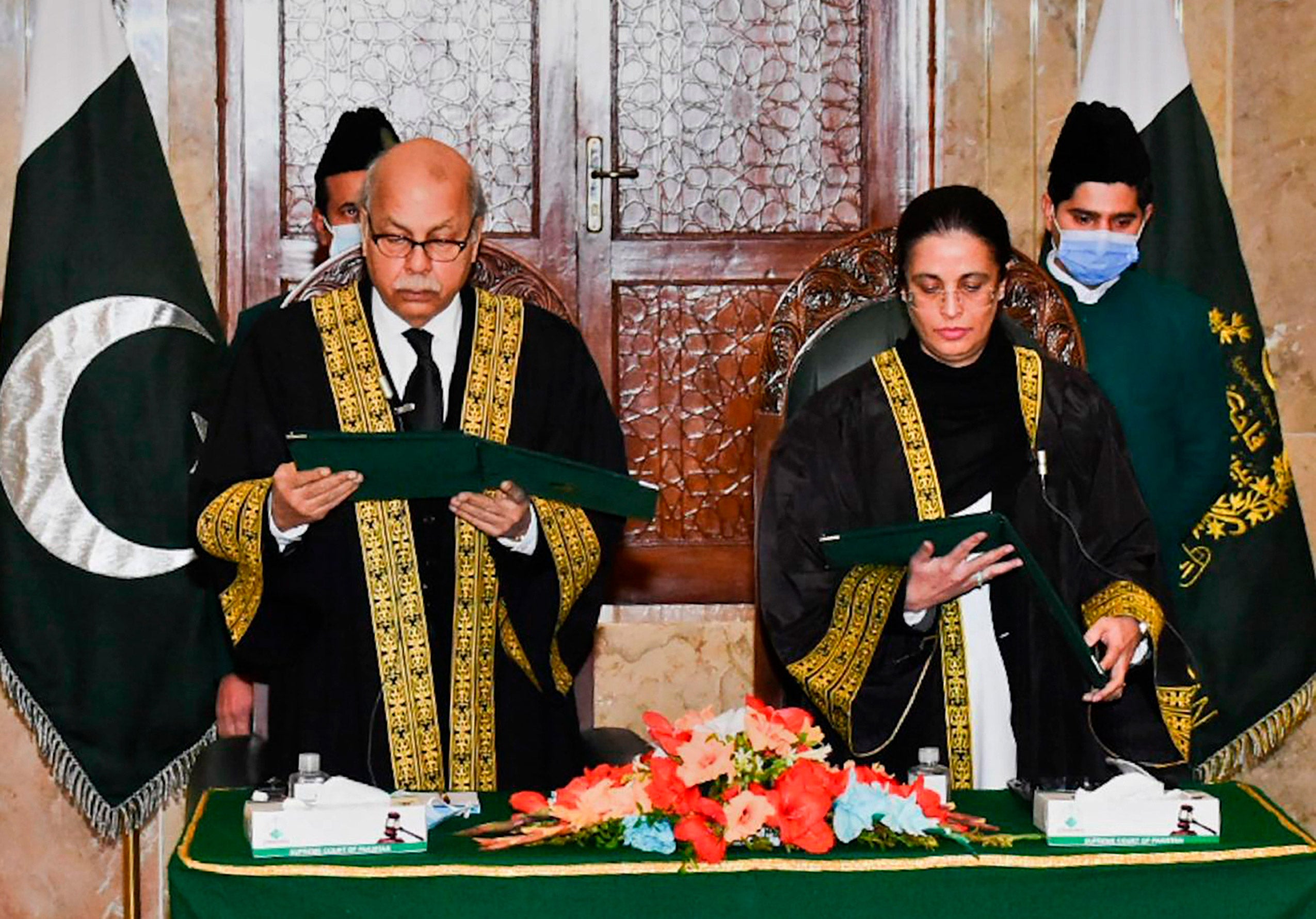In an event that has been called historic, empowering, and controversial, Ayesha Malik LL.M. ’99 has become the first woman to serve as a justice of Pakistan’s Supreme Court in the country’s 75-year history.
Before her appointment to the Supreme Court, Malik served for a decade as a judge on the Lahore High Court, in Pakistan’s Punjab region. She has served on the board of the Punjab Judicial Academy and as chair of a federal review committee addressing matters relating to women in the judiciary. And prior to entering the judiciary, she practiced corporate law and litigation at two firms and taught banking and mercantile law at the University of the Punjab and the College of Accounting & Management Sciences in Karachi.
As a High Court judge, Malik ruled on the enforcement of international arbitration in Pakistan and sat on the Green Bench, which deals with cases relating to the environment. Last year, before being tapped for the Supreme Court, she issued a seminal judgment outlawing the use of virginity tests in rape cases, writing that the practice “offends the dignity of the female victim” and discriminates on the basis of gender. In the wake of Malik’s ruling, the Punjab and Sindh governments issued orders to stop the use of virginity tests in sexual assault cases in which women are the victims, and the Supreme Court of Pakistan followed suit in a similar case, which became binding precedent on all of Pakistan’s high courts.
Marva Khan LL.M. ’15 and Orubah Sattar Ahmed LL.M. ’19 teach in the law school at the Lahore University of Management Sciences and lead the Pakistani Feminist Judgments Project, an initiative, inspired by similar projects in nine countries, which brings together female academics, practicing lawyers, judges, law students and others to reconsider judgments in significant cases from a feminist legal perspective. Khan and Ahmed have read Malik’s opinions, followed her career, and examined the controversy that erupted over her appointment.
As the global news media reported, Pakistan’s judicial commission initially voted against Malik’s appointment, and some lawyers and others in the legal community cited her lack of seniority. “No one was questioning her competence, her legal acumen, her integrity, or her discipline,” observes Ahmed. Instead, Khan points out, the debate was over a “seniority principle” for judicial appointments, derived from a 1996 Supreme Court precedent, which was superseded as a result of the amendment of Pakistan’s constitution in 2010. “It was a baseless argument, being pushed more on political and of course gender-based grounds as opposed to meritocracy,” she adds.
For Khan, Malik’s appointment is “a monumental moment,” in part because there are very few women in the judiciary in Pakistan, including only five of the country’s 115 High Court judges. Pakistan is also the last country in South Asia to appoint a woman to its highest court. “A glass ceiling has been broken,” Ahmed agrees. “Now the discussion has turned to how we can further increase inclusivity.”
